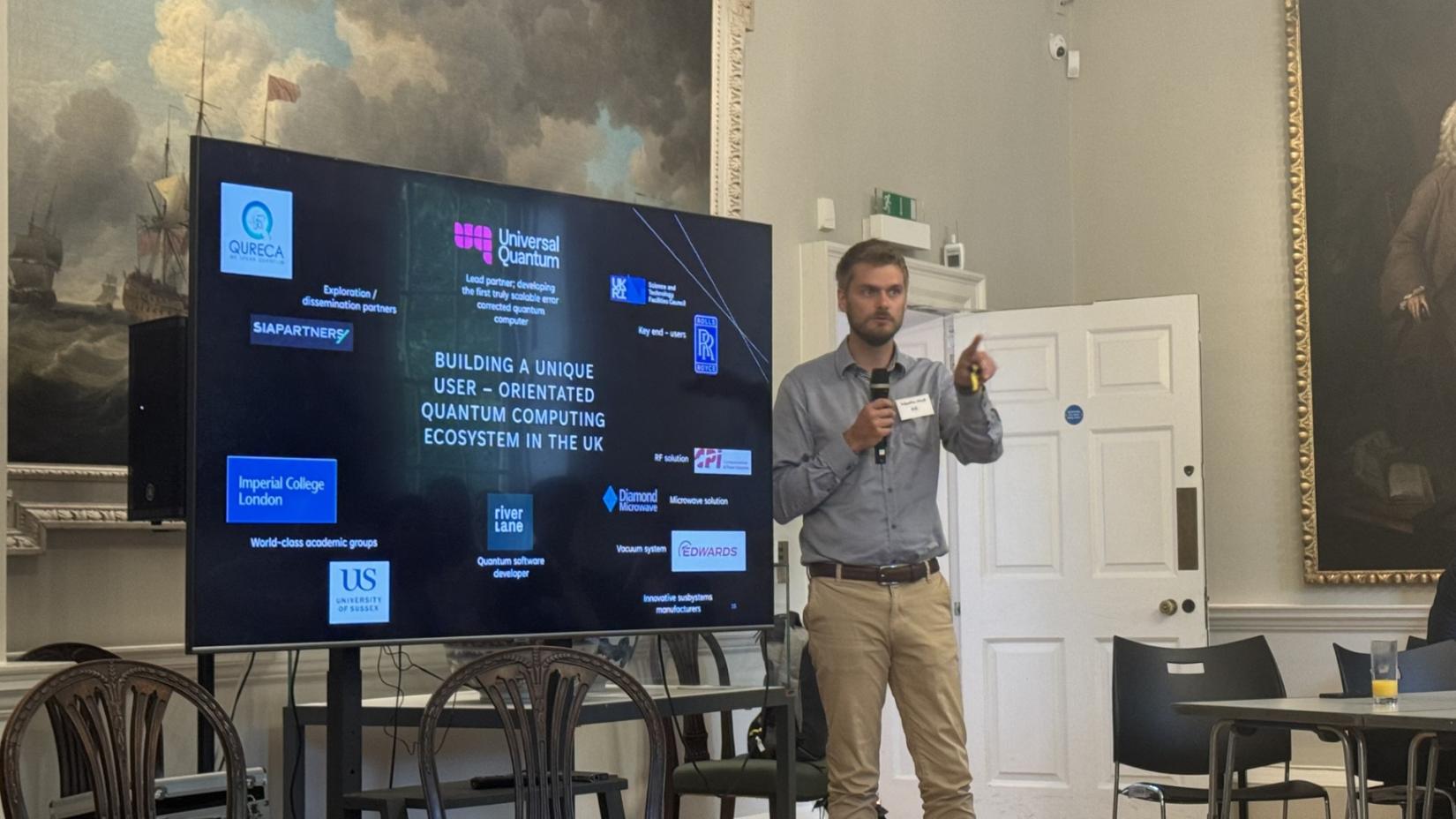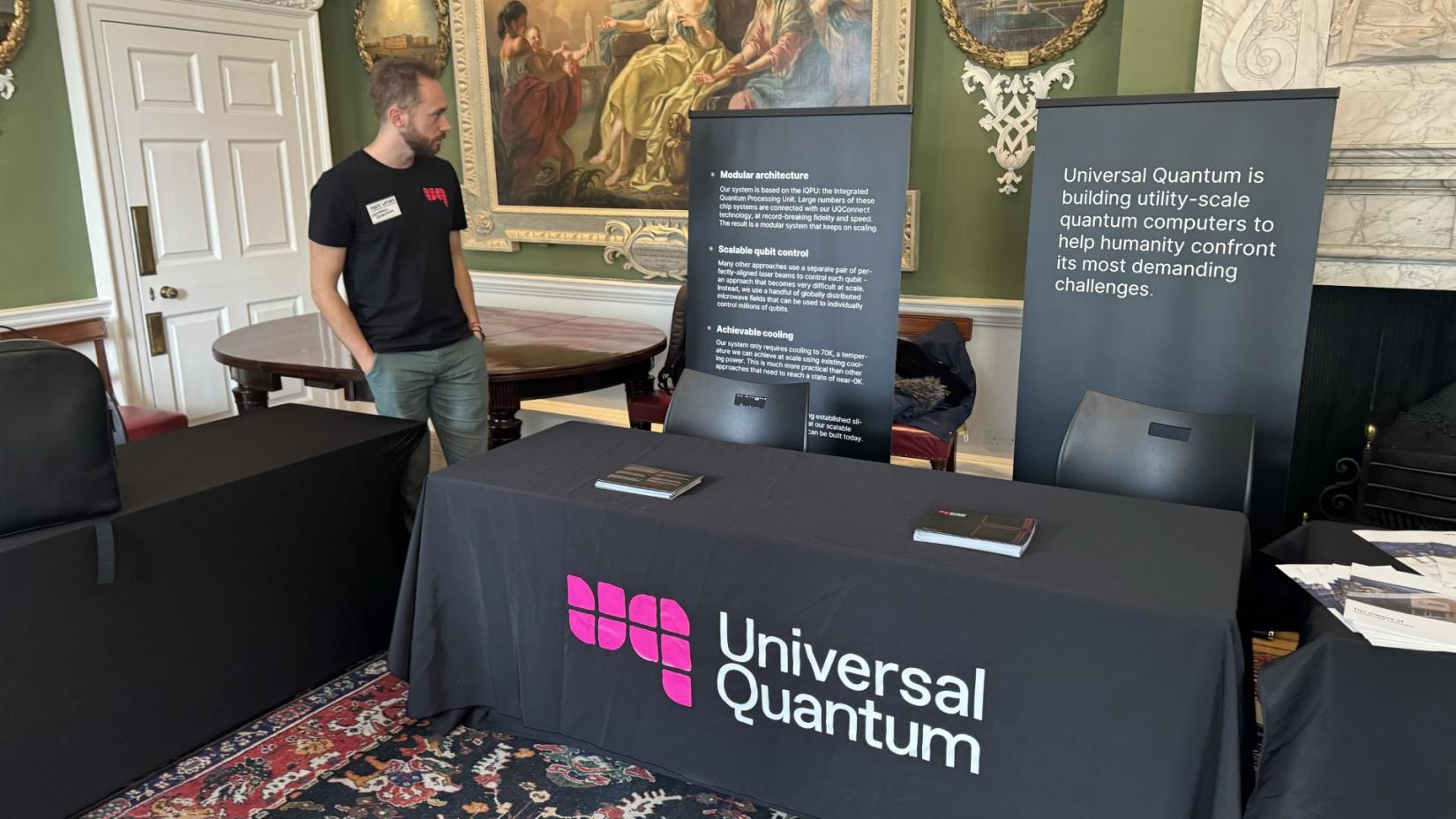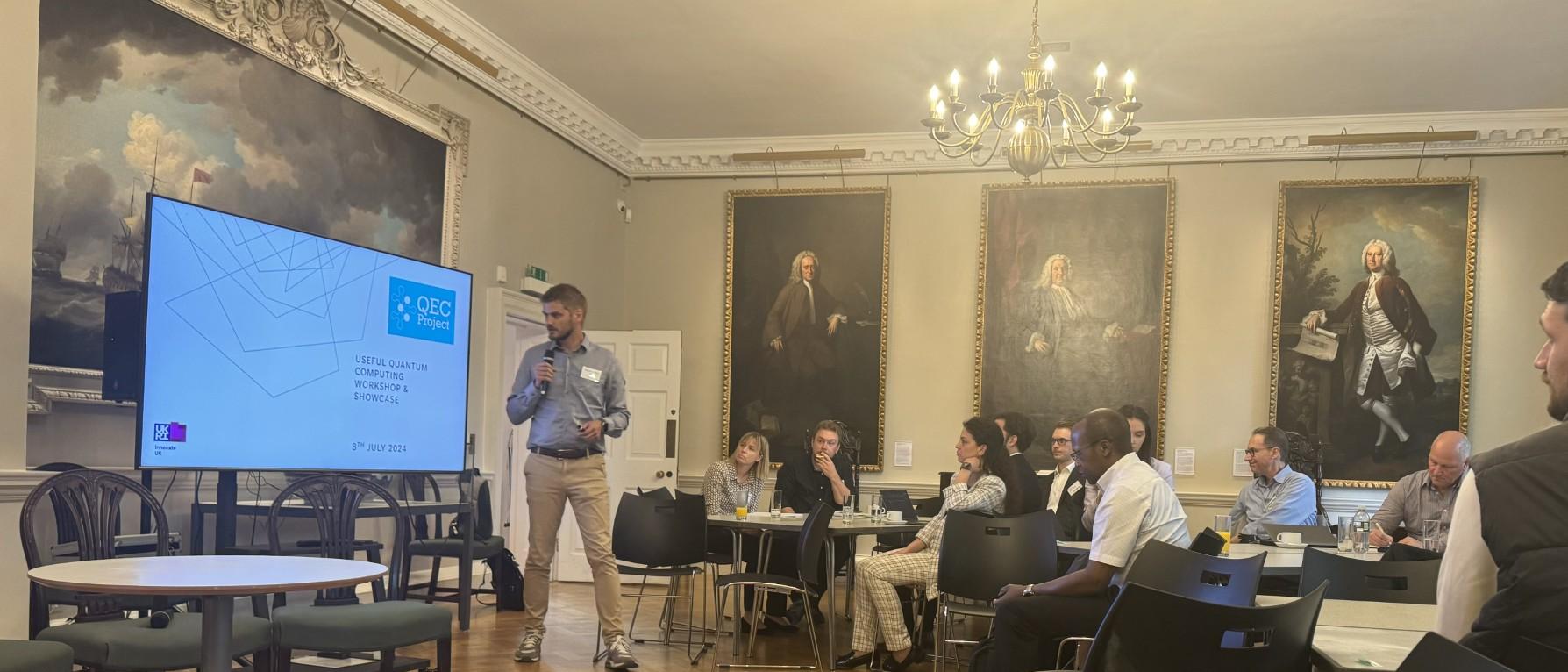Authored by: Air Marshal Andrew Turner CB CBE FRAeS CMgr CCMI
The next massive leap in global computing power is close and has the potential to change how the world works. The ordinarily baffling science of quantum is making enormous technical strides and is nearing key breakthroughs. The best part is that it is happening in Sussex, not Seattle.
Sub-atomic theory, entanglement, and the notion that something might be in two places at once are not easy to grapple with. However, Qureca and Universal Quantum brought the science and its applications to life in a productive "professor meets customer" session on 8th July 2024.
Held in the amazing London Foundling Museum, the day was deeply inspiring given the scale of the 18th-century compassion in the building for England’s most vulnerable children and its contrast with the enormity of the opportunity that this 21st-century science would confer on humanity.
Quantum computing is complex, but it is not simply a faster computer - it will be a force-multiplier. Previously incalculable problems (too many variables and too few computers) will be resolvable. Finding a cure for historically unconquerable diseases, predicting space debris trajectories, forecasting virus propagation, optimising transport network scheduling and many more challenges could become solvable.

UQ CEO, Sebastian Weidt, addressing the audience.
Those at the front of the queue will hold the "quantum advantage" (the ability to calculate faster than others). For my domain of operation, this could mean securing success on battlefields through information dominance. Quantum will be an ace in the hand.
While we are close, very significant hurdles lie ahead: designing qubits (memory), controlling them, making them function effectively, reducing errors, scaling them to out-perform conventional processing, maintaining modest temperatures, and developing uses and algorithms. None of these are easy, but if the UK is to remain ahead in Europe and in the global top three, it must focus its effort.
The last government committed £2.5bn/10 years, but spread it too thinly; it feels more like charity than a catalyst. So, the UK Quantum Strategy needs to focus on what’s good for Britain, through what Britain is good at. Quantum processing and timing are two of the most important capabilities - processing will be at the heart of everything, and resilient precision timing is vital to our way of life - both of which are points of UK expertise. We need to pick quantum winners if we are to win.

The new government has a mandate to refresh our national strategies and approaches. It has a self-styled focus on growth and a clear five-year runway to make a difference. These political freedoms are precisely what the UK quantum sector needs if it is to break through and lead the world in the way that Amazon, TSMC, OpenAI, and others have captured their markets.
The government should capitalise on our scientific lead and catalyse national growth through it. Clear-sighted priorities in the national interest, targeted finance, Bank of England support, and an engaged and incentivised market will secure quantum advantage for the UK.
It is however a step in the right direction to hear Universal Quantum's pledge to galvanise the UK quantum computing ecosystem by organising more events that brings key sector players and public sector decision-makers together. These dialogues will hopefully help in propelling the dream of making the quantum future a reality.




